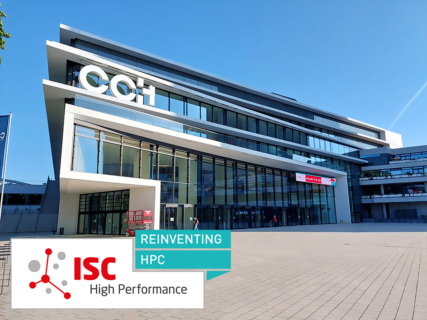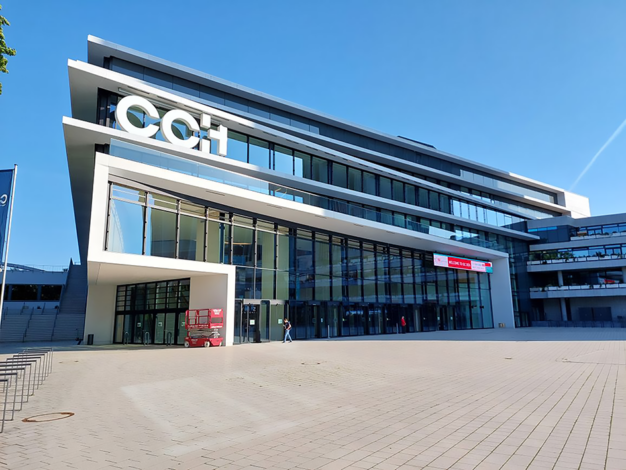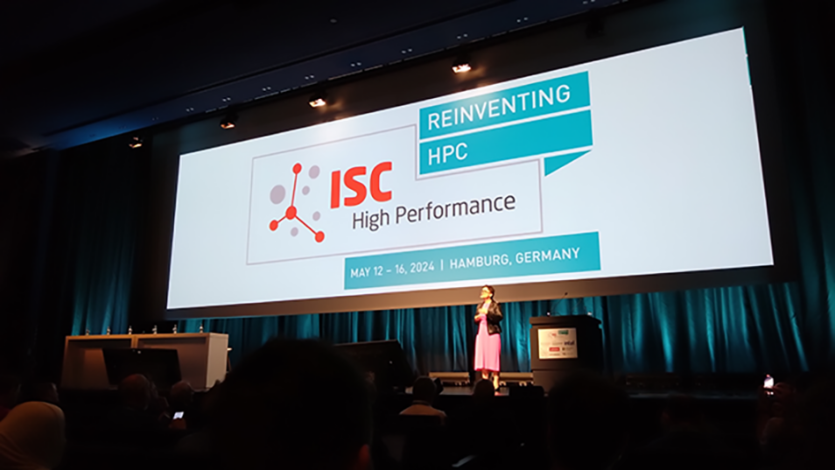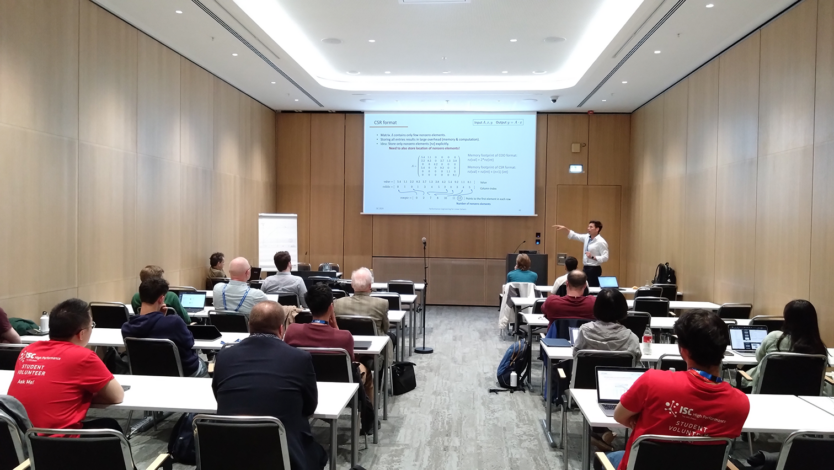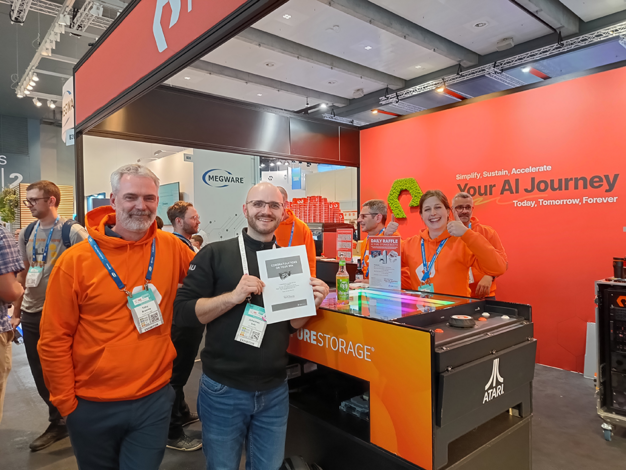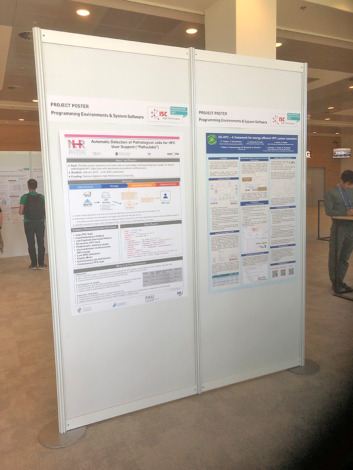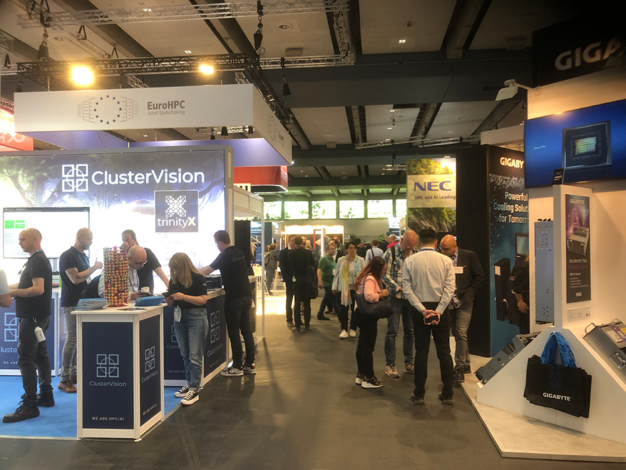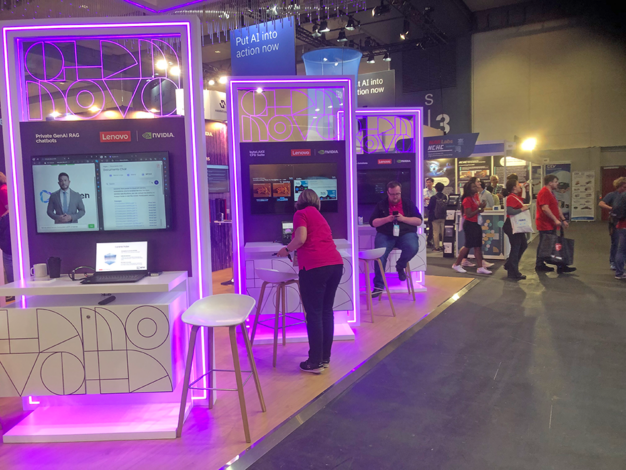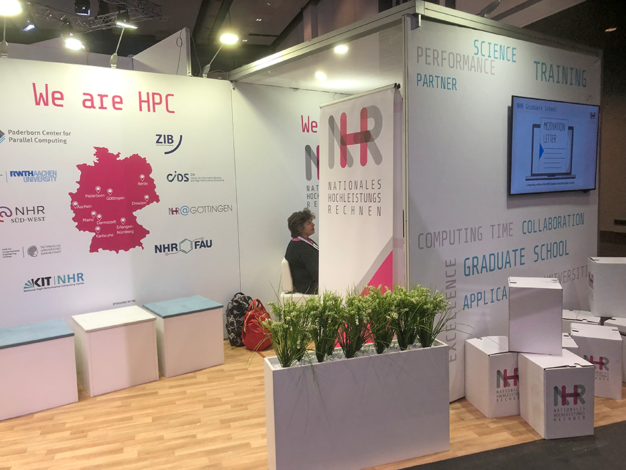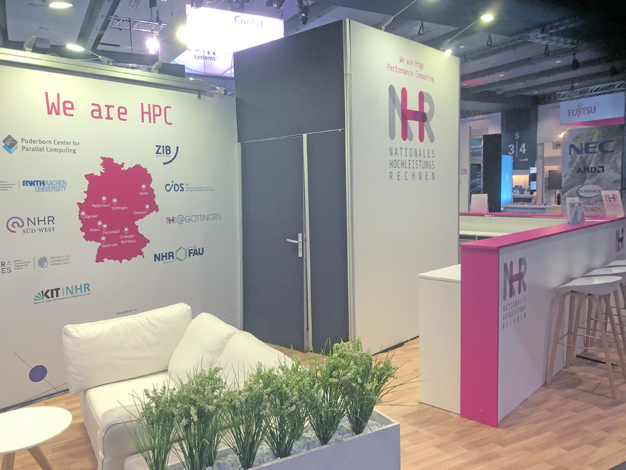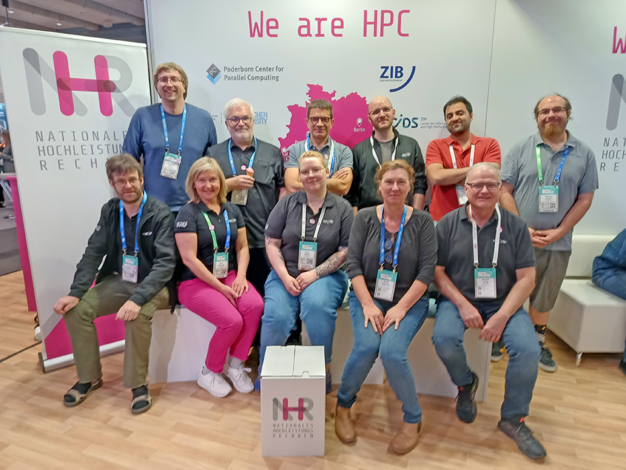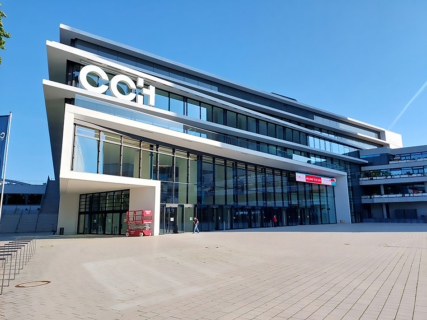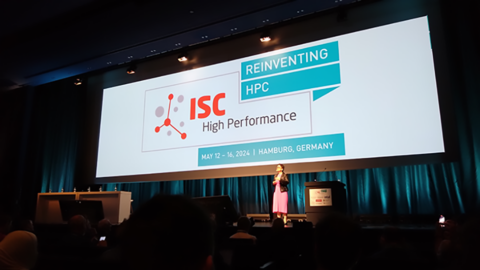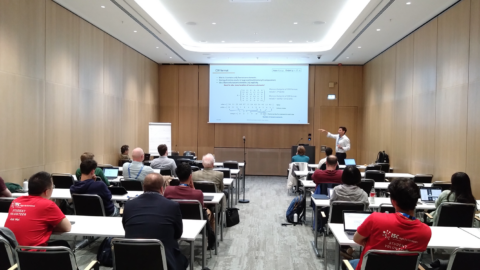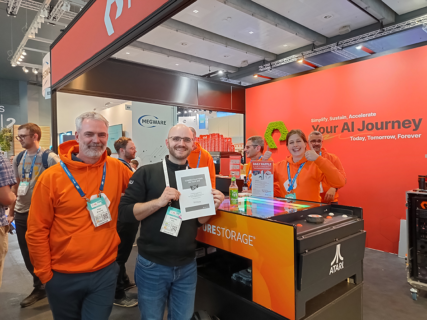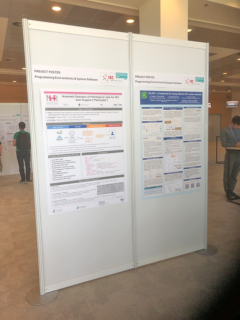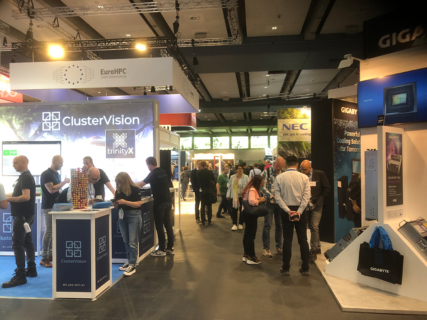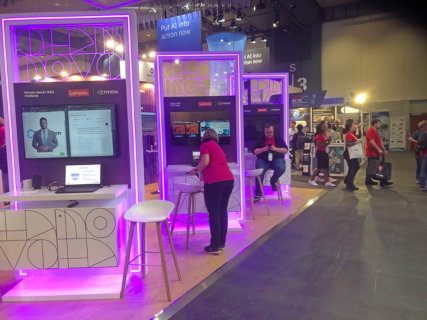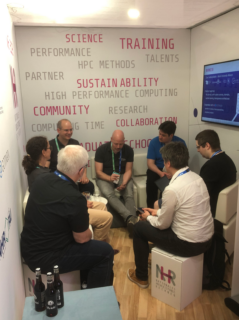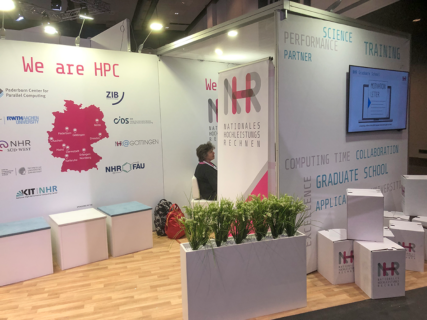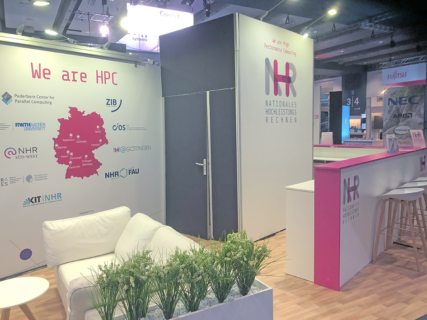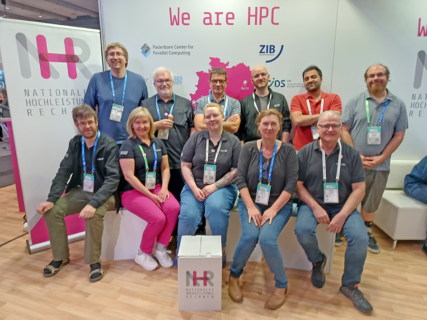ISC High Performance 2024 in Hamburg
The HPC world came together once again for its early-summer shindig: From May 12-16, ISC High Performance 2024 took place in Hamburg and attracted over 3400 supercomputing experts from around the world. This year’s dashing slogan: “Reinventing HPC.” And that’s what they did, exploring and discussing opportunities and challenges of emerging technologies and new ways of interaction between HPC, AI, Machine Learning, and Quantum Computing. As a novelty in the paper track, all accepted research papers are available with free Open Access in the IEEE Digital Library!
Together with the other eight NHR centers, NHR@FAU showcased its infrastructure and services as part of the NHR Alliance booth, socialized and made its presence in the scientific community felt. In addition, we participated in the ISC program with a half-day tutorial, two project poster presentations, and sofa talks.
New Tutorial
“Performance engineering” for solver algorithms has a concept of “optimal performance” that accounts for both hardware resource efficiency and rate of convergence. The new tutorial “Performance Engineering for Linear Solvers,” held on Sunday, May 12, by Christie Alappat and Georg Hager in collaboration with Jonas Thies from TU Delft and Hartwig Anzt from TU München, introduced the concepts of performance engineering in the context of sparse linear iterative solvers. The Roofline performance model, sparse matrix-vector multiplication (SpMV), the Conjugate-Gradient (CG) algorithm, preconditioning for faster convergence, and even cache blocking for sparse matrix power operations were covered.
Posters Galore
In a joint project poster entitled “EE-HPC – A Framework for Energy Efficient HPC System Operation,” Jan Eitzinger, Thomas Gruber, and Rafael Ravedutti from NHR@FAU presented – alongside project partners from RWTH Aachen University IT center, HLRS Stuttgart, HPE Germany and DKRZ – a BMBF project whose goal is to develop an innovative monitoring system that reduces energy consumption while increasing computing power.
A second project poster described “PathoJobs,” an NHR project that revolves around the automatic detection of pathological jobs for HPC user support. The project develops an automated rule-based detection system for jobs which make very bad use of the allocated resources on a cluster. In this project, NHR@FAU collaborates with partners from NHR4CES in Aachen and Darmstadt, PC2 in Paderborn, and ZIB in Berlin.
Cozy Couch Chitchat
The “sofa talk” format at the NHR booth was launched last year to provide a platform for discussing relevant topics with invited guests in a relaxed, personal atmosphere. This year, Georg Hager brought together HPC training experts to talk about the coordination of training activities in the NHR Alliance. Other sofa talks revolved around AI, IT security, visualization, and more.
TOP500
Traditionally, the new TOP500 list of the most powerful HPC systems is published right at the beginning of the conference, and 2024 was no exception. The Frontier system at Oak Ridge National Laboratory in the USA remains in first place, drawing its exceptional performance of 1.206 ExaFlop/s from AMD’s “Instinct MI250X” GPUs. As the second official exascale system worldwide, Aurora at Argonne National Laboratory secured second place, with its brand-new Intel “Data Center GPU Max” (a.k.a. “Ponte Vecchio”) accelerators, although the final expansion stage has not yet been reached. Ironically, Intel announced one day later that they are about to phase out the Ponte Vecchios (PVC) in favor of its successor architectures, even before many of the larger PVC sites are operational.
With 380 PetaFlop/s in fifth place, LUMI at the CSC in Finland is the most powerful European supercomputer. The fastest German system “JUWELS Booster Module” achieved 21st place and is located at Forschungszentrum Jülich (JSC), while the fastest NHR supercomputer “Goethe-NHR” at the University of Frankfurt came 104th. In total, five computers from Germany made it into the top 100 supercomputers. Alex and Fritz, NHR@FAU’s flagship systems, still made it to 212 and 242, respectively. The slow turnaround all across the list keeps us “in the club” for much longer than what was possible ten years ago.
Reinventing HPC?
Five high-octane days packed with information and networking – was it worth it? Did we reinvent HPC? One thing is certain: The community urgently needs the regular cattle drive to discuss the challenges at hand. Anyone who can contribute would do well to meet up in Hamburg at ISC High Performance.
Dr. Georg Hager
Erlangen National High Performance Computing Center (NHR@FAU)
Research Division
- Phone number: +49913185-28973
- Email: georg.hager@fau.de

